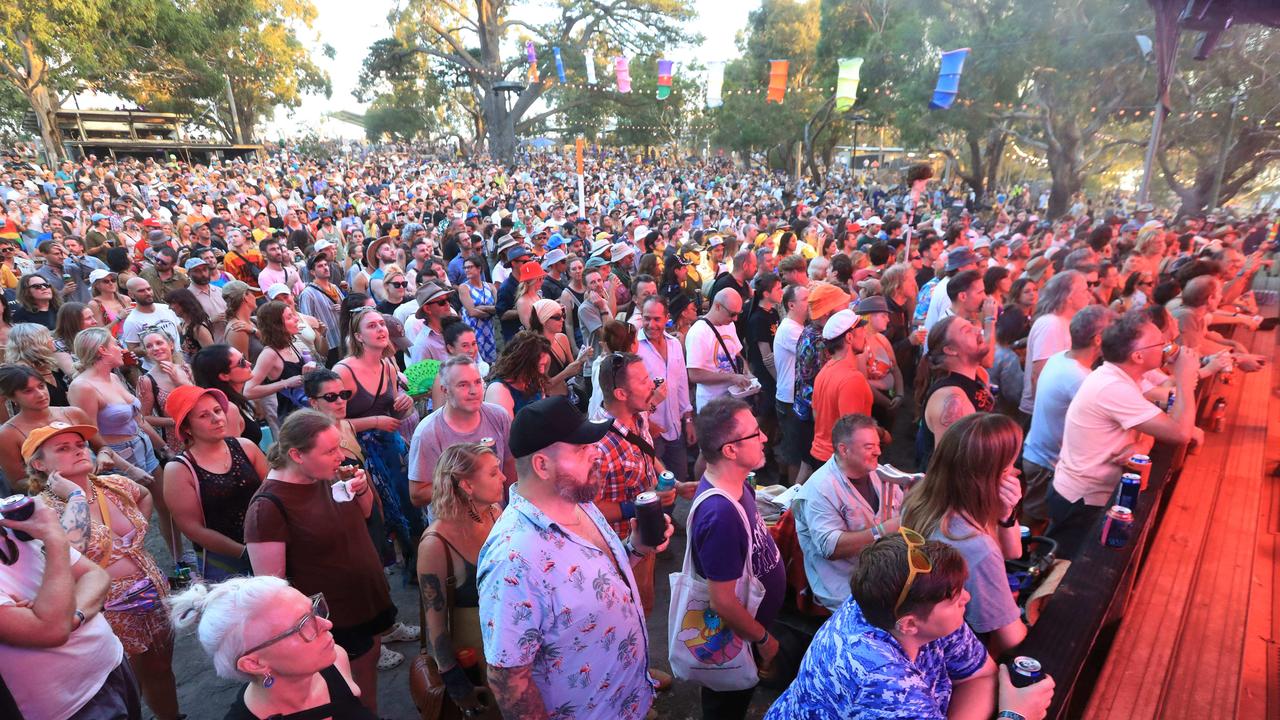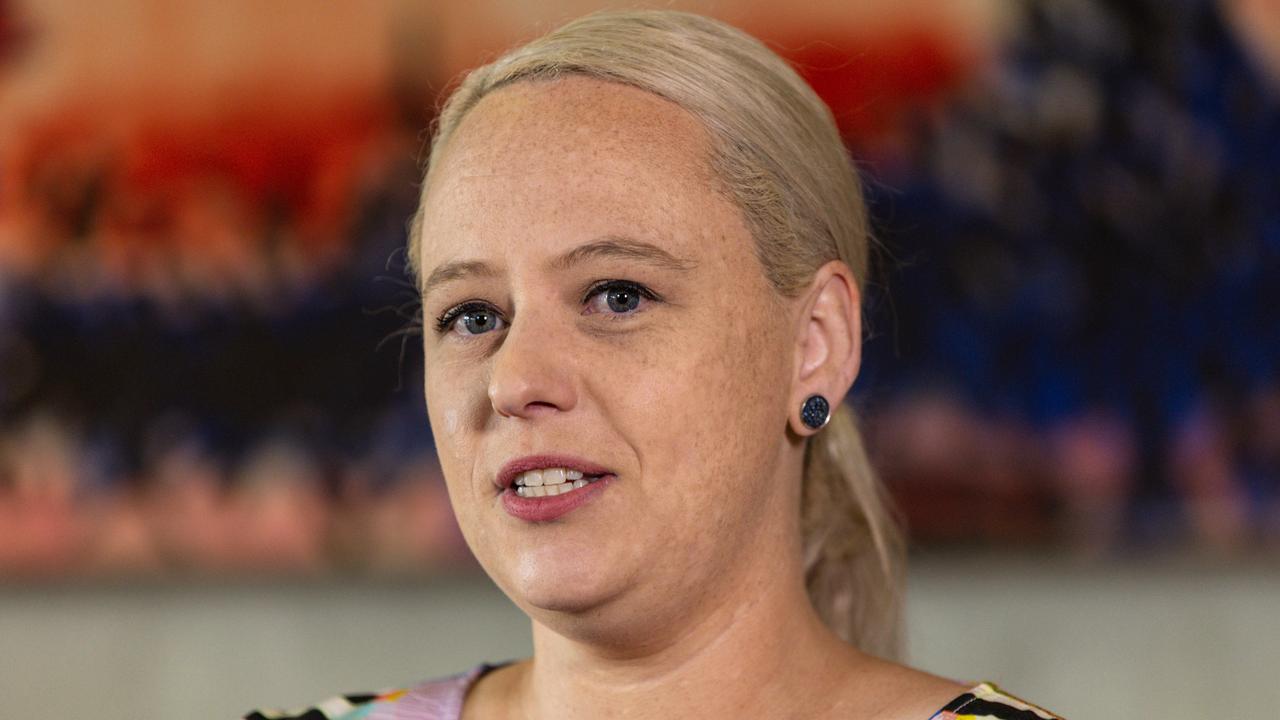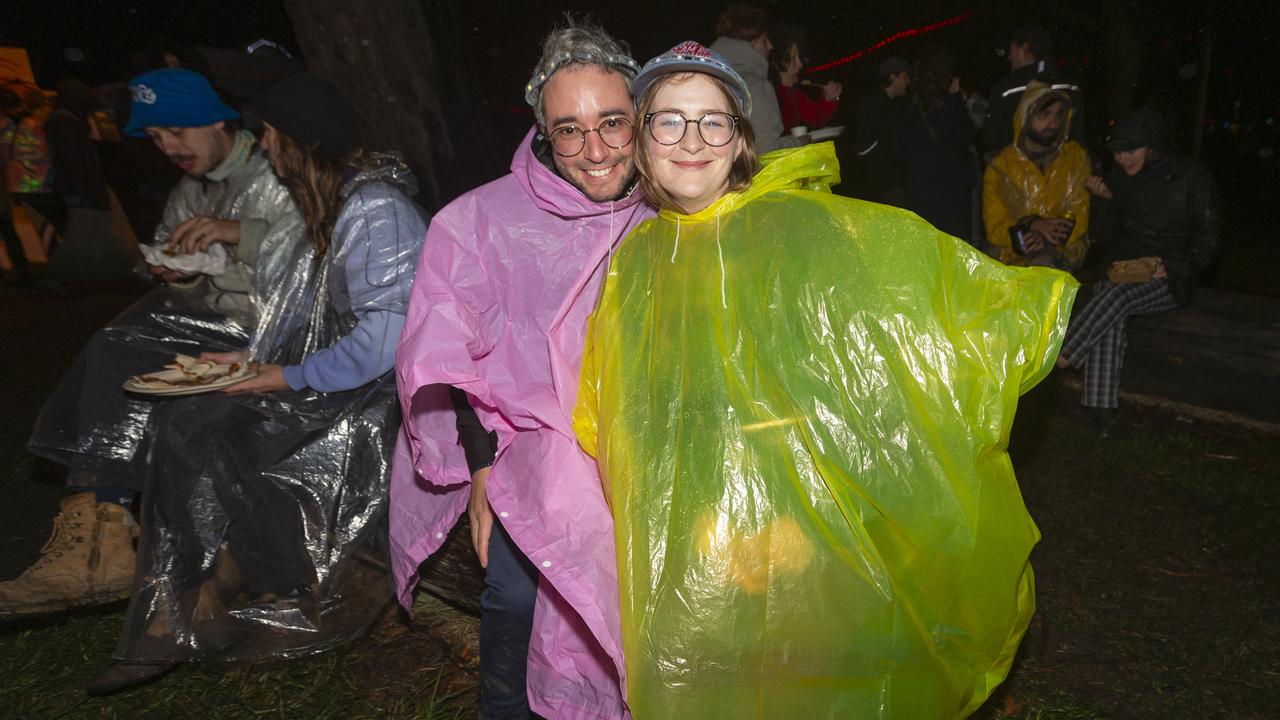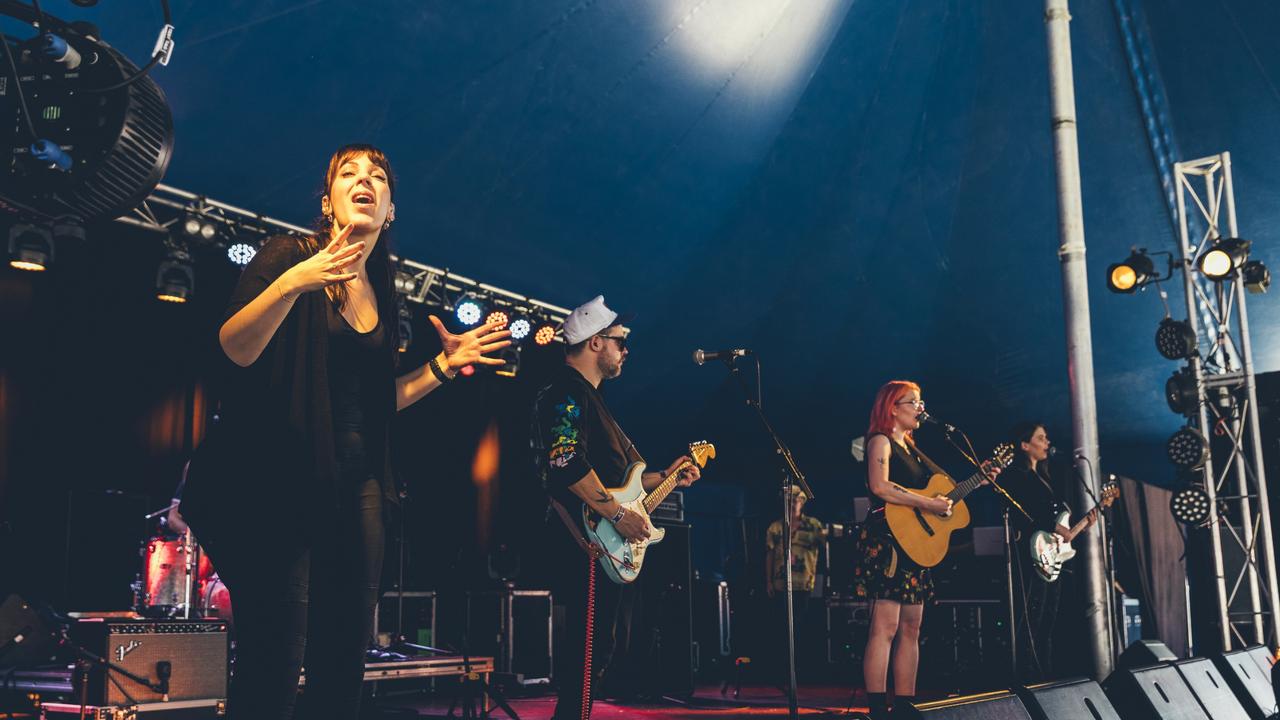Music festivals continue to battle economic pressures and changing audience habits
Music festival organisers are fighting to remain operational amid economic pressures and changing consumer habits, Abby Walter reports.

Geelong
Don't miss out on the headlines from Geelong. Followed categories will be added to My News.
The Geelong region’s thriving music festival scene could be fighting an uphill battle as habits change and potential ticketholders grapple with a cost of living crisis.
But industry insiders believe the value in live entertainment is not lost.
When Splendour in the Grass, one of the country’s oldest and biggest music festivals, was cancelled for 2024, following festivals like Groovin The Moo, FOMO and Dark Mofo being on hiatus or also cancelled, the future of festivals looked shaky.
Locally, Falls Festival has not returned since it sold out in 2019, due to heat, Covid and a decision to relocate from Lorne, and Tent Pole Music Festival at Mt Duneed was cancelled in January due to the “economic climate”.
Music Victoria chief executive Simone Schinkel said she wished there was one easy solution.
”We’re facing a cost-of-living crisis so if people can’t pay rent, that’s obviously going to have an impact on their ability to spend money,” she said.
“Rather than going to five festivals, or even two a year, people will go to one, and that’s having a broader effect.
“Our research found people were still keen to engage with music but have changed habits, we’re used to staying at home and we like to change our minds.
“The challenge for many ticketed events is people don’t buy tickets until the last week and our business models aren’t built to support that.”

Ms Schinkel said costs of hosting festivals was skyrocketing.
“We can’t pass on those costs to consumers so it is a very tricky time,” she said.
“We didn’t see theses changes coming and it’s hard to adapt so quickly.
“Adaptation will happen, the music industry is used to being disrupted and adapting.”
Ms Schinkel said new state government grants showed there was interest and value in live events.
“Yes, there are some big ones that have gone down but others are still going ahead which is exciting,” she said.
“I think there is a real demand for niche festivals or genre-specific festivals.
“Ultimately it comes back to community and if you have a community, you know who you are and you can service them, we can ride through these challenges.”
In 2023, Meredith Music Festival in December was sold out within a few minutes of its final allocation going live at the end of August.

Subscriber pre-sale allocation has already been exhausted for this year’s Queenscliff Music Festival, slated for November.
Ms Schinkel said there was lots of research occurring to drive solutions.
She said young people were not attending festivals in the volume they used to and that was a concern.
One festival told the organisation they had their audience who keep coming back but if the festival was to be sustainable they needed to keep renewing their audience, she said.
“Music Australia has done some of their own research and is currently running a survey to understand things in more detail too,” Ms Schinkel said.
“We are all trying to understand what we have control to change and what we don’t, like the broader economic climate.
“But as a long game we want to know how can we re-engage with young people to make sure a festival experience is something they want.”
Beyond The Valley director of festivals and events Pete Sofo said the second year of Beyond The Valley festival at Barunah Plains,which was held over New Years, sold out all 35,000 tickets.
“It’s been great to see the positive response to our new home with our customers,” he said. “While there’s challenges we are facing as an industry, it’s encouraging to see there is still a strong interest in the multi-day camping festival format.
“Although there’s been some negativity surrounding festivals, it’s important to highlight the Geelong region is currently home to Australia’s largest multi-day festival.”
Mr Sofo said there was plenty of discourse statewide about the economy and increasing costs.
“If people have less disposable funds or funds allocated to entertainment, they may have less available for festival tickets,” he said.
“Festivals have also had to increase their ticket prices due to increased costs, so there’s a fine balance between increasing prices in line with the increased cost of putting on an event, and pricing the customer out.”
However, Mr Sofo said there would always be demand for festivals.
“Entertainment is something people require in good times and bad times, it will always be there,” he said.
“There’s also a cultural shift in music tastes, which we as event organisers need to keep on top of.
“People’s music consumption and listening habits have shifted, for example a lot of the Gen Z audience source their music from Tiktok and streaming platforms like Spotify which hasn’t always been the case in the past.
“It is important to remain agile and adapt to current trends.”

Face To Face Touring organises SummerSalt, By The C and Lookout at Torquay Common in the Geelong and Surf Coast region.
Face To Face Touring’s Roy Adams said recent events were successful.
“We don’t really characterise our concerts as a typical ’festival’ – our concerts are single day events, with a single stage, and five to six bands performing,” he said.
Mr Adams said for any outdoor concert event the challenges were about costs, getting ticket price right, and making sure the artist line-up was appealing.
“We always try to work closely with the local authorities, councils, and key stakeholders to make sure there is good communication and planning,” he said.
“For regional areas, it’s important to consider the economic impact that our concerts can bring to the area as this is a key factor for the local councils and tourism bodies.”

Minister for Creative Industries Colin Brooks said Victorian music venues and festivals were the lifeblood of many communities.
He said the government’s Live Music Festivals Fund would provide grants of up to $50,000 to established Victorian festival organisers to help them stage new or existing events.
“We’re working hard to support our vibrant festivals and their staff as they navigate Australia-wide challenges,” he said.
Originally published as Music festivals continue to battle economic pressures and changing audience habits






